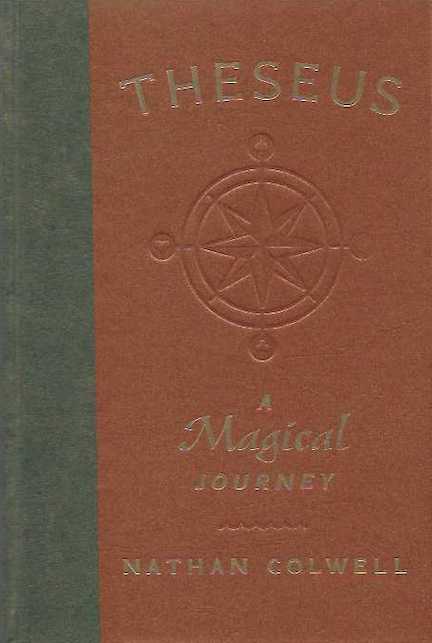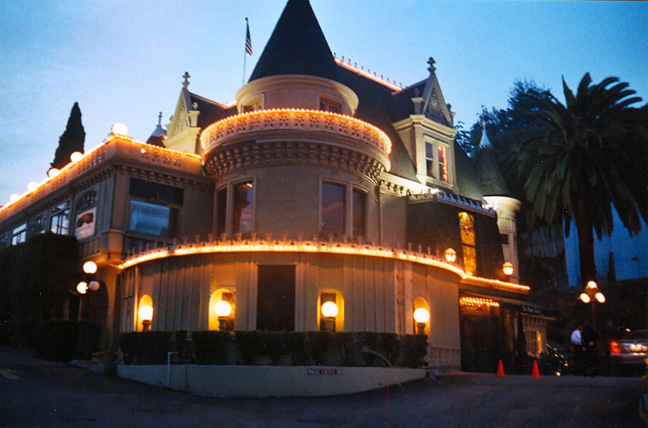
PHILOSOPHICAL VOYAGE — In magic, hey say that you should establish your character and premise first, and only then decide on a method. Well, if your character is someone who immerses himself in the writings of Plutarch, and your premise is to illustrate a philosophical thought problem known as the Ship of Theseus, have I got a book for you! Theseus is the latest publication from Magic, Inc., a compact 118-page study on the variants of a single card trick.
To quote the book’s Plutarchian challenge:
"The ship on which Theseus sailed with the youths and returned in safety, the thirty-oared galley, was preserved by the Athenians of Demetrius Phalereus. They took away the old timbers from time to time, and put new and sound ones in their places, so that the vessel became a standing illustration for the philosophers in their mooted question of growth, some declaring that it remained the same, others that it was not the same vessel.”
I’ve encountered this conundrum elsewhere along the way. Given that our cells are replaced every seven years, can we argue that any crimes or awards committed or earned more than seven years ago were done so by some other guy? (This observation is also made in the book.) My favorite are the words of comic juggler Michael Davis, as he is about to juggle some razor-sharp implements. Just stick a Jack Benny pause between the sentences:
“This is a very old axe. It belonged to George Washington. I had to replace the handle. And the head. Occupies the same space.”

And I once enjoyed, in a science-fiction letter to Miss Lonelyhearts, the struggle of an unfortunate man who had most of his body parts replaced, until all that was left was his head, and then even that had to go, so his mind was transferred to a bank of computers. His question regarding his girlfriend: Does she love me for myself or my money?*
To illustrate the problem by way of a card trick, have a card selected and signed, the signature covering the entire face. Tear the card into quarters, then replace each piece with a quarter from another card (or cards) with a different back design. When the four pieces are turned face up, the signature is still in place. Is it the same card or a different one?
Author Nathan Colwell provides ten or so original solutions with no restrictions, involving waxed double cards, misprinted crds, blank faces, rough-smooth, and intricate sleight of hand switches, all elaborated upon with extensive footnotes and citations. My library is fairly complete, but most would need a subscription to the Conjuring Arts Research Center to track down all the original moves. I must be honest: I had difficulty comprehending the details of some of the methods.
In addition to his own methods, Nathan provides guest methods from Harapan Ong and Simon Aronson. In Harapan’s version, each of the signed pieces is swapped for a piece of a different color from a bag of torn pieces. In Simon’s, red and blue backs designate the differences. It was heartwarming to encounter a new trick from Simon, and I thought his was the best in the book, one I not only could do but would be happy to.
This is a remarkable book. Nathan Colwell is a Chicago magician who knows his Chicago magic, especially Marlo. That the book’s methods and asides are deep weeds is part of its charm, part of what make it a delightful example of magical scholarship. Kudos to Nathan for writing it and Magic, Inc. for publishing it. Hardback, $49.95 plus shipping from wwww.magicinc.net.
*Alas, I can no longer locate this short story. Mom must have tossed it out with my comics. If you know the source, please get in touch.

A few reprints this month are of interest and now in hand.
HEAVENLY — First up is Seventh Heaven, by Lewis Jones, from H&R Magic Books. This is one of my favorite books, reviewed here last month and originally here in March 2004. The new edition, updated by Charlie Randall and the late Lewis Jones, features Tony Dunn illustrations rather than photographs, a major improvement. Re the content, I immediately read Mint Sauce, my favorite Jones trick, a prediction of sorts played as a wager. The new version ups the ante considerably, making for a more entertaining routine. Other favorites (listed last month) play more as they originally lay, from the remote room mediumship of Thimble to the ingenious Memory Deck and Deeper, Deeper.
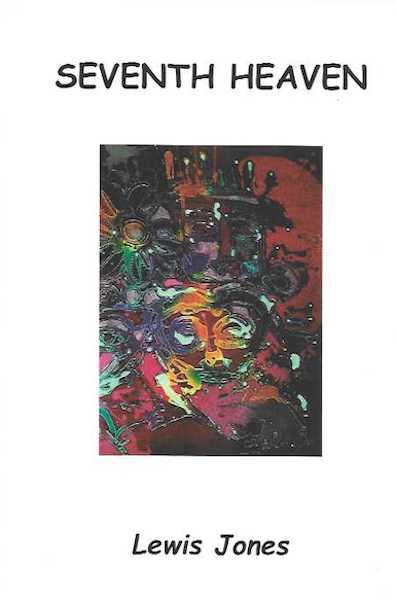
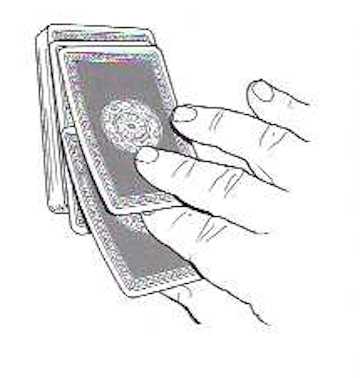
This second edition is in a similarly handsome format as the original, expanded from 388 pages to 414, partly due to text and illustration changes and partly due to a slightly more compact format (6 1/8 by 9 1/4 in vs. 7 by 9 7/8 in). $55 from H&R Magic Books, right here https://hrmagicbooks.com/product/seventh-heaven/ Also note, per last month, that Nick Trost's Subtle Card Creations Volume 1 has been reprinted, available for $55 from the same source. Highest recommendations for the entire Trost library.
WHO THE HECK IS HECTOR CHADWICK? — The second reprint to cross my doorway, or rather third, is The Definitive Mental Mysteries of Hector Chadwick. Written by Derren Brown consultant Stephen Long, the original edition came and went before many of us knew it was available, hence thanks to Vanishing Inc. for publishing a new edition. The author loves playing with names, and you should enjoy his nameplay with spectators along with the fact that there is no such psychic persona as Hector Chadwick, though he certainly sounds like one.

Among a generous collection of 20 or so effects and essays, a few that struck me as particularly fun:
Shriek — A high-tech prediction of an impossibly selected card. You can do this any time with an unprepared deck and your iPhone.
Mars & Murrie — An équivoque routine with M&Ms. This is the effect from the book I am most likely to perform, in my case for a grandkid. Mr. Long indeed adds verbal and visual strategies to equivoque routines, and I love the “deadly” twist at the end of this one. It reminds me of Tom Stone’s Hug/Kill routine.
The Windsor Magnet — A Lulu Hurst-type routine you can perform any time, anywhere.
Tossed Out Q & A — Although I do not have the nerve (so far) or the sufficiently large audiences to perform the Tossed Out Deck, I have secretly loved the brilliant twists that have been added since David Hoy first popularized it. This is no exception, a multi-phase, multi-method variant.
Hardbound, foreword by Derren Brown, 258 pages, $60 from Vanishing Inc.

THANKS FOR THE MEMORIES -- The most fun I’ve had reading a book this month was not a magic book, but a showbiz autobiography—Mel Brooks AllAbout Me Me. I haven’t laughed—or cried with joy—this much while reading in a long time. The book follows Mel’s entire career, writing for Sid Caesar, doing the 200 Year Old Man with Carl Reiner, creating “Get Smart,” writing, and directing a string of movies (The Producers, Blazing Saddles, Young Frankenstein,…), writing and composing the musical The Producers, and receiving all the awards a boy could wish for. His advice sounds like advice straight out of magic books:
“Failure is vital. It is an incredibly important quotient in the equation of a career.”
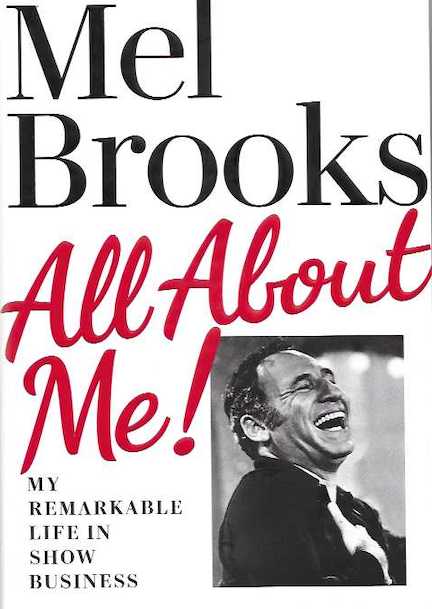
Although the book deals specifically with Mel’s career, it also covers the early ground of his childhood in Brooklyn and his and his brothers’ harrowing experiences in World War II, and his later private moments, including, yes, his friendship with Harry Lorayne and Renee. I recall a magic convention in Las Vegas to which Harry brought Mel and his wife Anne Bancroft. She was so, so beautiful. Ah, dreams of Mrs. Robinson.
Hardbound, 469 pp, $29.99 from Ballantine Books.

